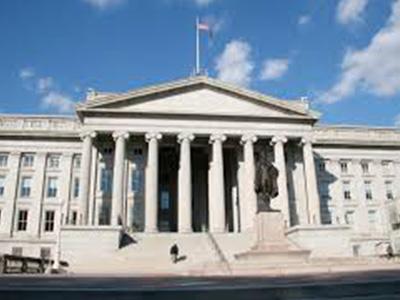 The US Federal Reserve’s decision to hold interest rates steady exposed a gulf in global stocks Friday, with European shares slumping and emerging markets jumping.
The US Federal Reserve’s decision to hold interest rates steady exposed a gulf in global stocks Friday, with European shares slumping and emerging markets jumping.
Prior to last month’s bout of market volatility over China’s ability to manage a soft landing of its slowing economy, the Fed had been expected to lift rates on Thursday for the first time in nine years.
But the Fed held fire, citing concerns about how the slowdown in China would hit the US economy.
That spooked advanced countries worried about the outlook for the global economy.
But emerging markets rose in relief because an interest rate hike would have drawn investment funds from their countries to seek higher returns in the United States.
“Leaving US interest rates at rock bottom could mark a turning point for the relative performance of emerging and developed markets,” said analyst Jasper Lawler at CMC Markets UK.
“Since the decision was made, emerging markets closed the day higher while stocks in the US and Europe have dropped,” he added.
In afternoon trading, London’s FTSE 100 index dropped 1.94 percent compared with Thursday’s close to 6,067.23 points.
In the eurozone, Frankfurt’s DAX 30 plunged 3.55 percent to 9,866.60 points and the CAC 40 in Paris sank 3.01 percent to 4,514.97.
In Asia, Tokyo fell 1.96 percent, but other indices advanced as concerns eased over an outflow of cash. Shanghai ended 0.38 percent higher and Hong Kong added 0.30 percent. Seoul put on almost one percent and Sydney ticked up 0.46 percent.
Wall Street stocks opened sharply lower after most having already fallen Thursday in the wake of the Fed’s announcement.
About three minutes into trade, the Dow Jones Industrial Average was down 1.17 percent, the S&P 500 0.96 percent and the tech-rich Nasdaq Composite Index 1.10 percent.
The Fed’s decision followed widespread warnings about the dire impact a rate increase could have, with the World Bank predicting this week it would cause a “perfect storm” in financial markets.
It also came despite a string of data in recent months showing the US economy, the world’s biggest, is well on track to recovery.
Fed Chair Janet Yellen told a news conference: “A lot of our focus has been on risks around China, but not just China, emerging markets more generally and how they may spill over to the United States.
“We’ve seen significant outflows of capital from those countries, pressures on their exchange rates and concerns about their performance going forward,” Yellen said of the emerging market economies.
– Emerging currencies shine –
Struggling emerging market currencies, which had been rising this week on hopes the Fed would hold fire, rose further. The South Korea won added 0.27 percent, the Malaysian ringgit gained 0.64 percent, India’s rupee was one percent higher and the Singapore dollar was up 0.06 percent. The Thai baht and Taiwan dollar also laid on further gains.
The Fed decision also hurt the dollar against the yen sliding to 119.38 yen in European trading, compared with 120.90 yen in Asia Thursday.
However the euro slid to $1.1418 from $1.1436 a day earlier, after Benoit Coeure, a member of the European Central Bank’s executive board, vowed it would “protect the eurozone from external financial shocks”.
The rate of return on eurozone bonds had already been falling as investors anticipated the Fed’s decision might prompt the ECB to step up its QE stimulus programme of bond purchases.
However stocks in Europe fell as investors saw the Fed inaction as confirmation of the global economic outlook .
“The Federal Reserve’s fear over a global growth slowdown cast a shadow across the whole of the FTSE 100,” said Lawler, with both commodities companies dependent on emerging markets and banks that would have done well from rising interest rates taking hits.
Standard Chartered fell 3.0 percent to 718.80 pence in afternoon trading, RBS sank 2.9 percent to 316.30 pence, Barclays dropped 2.7 percent to 253.40 pence, and HSBC reversed 2.5 percent to 490.10 pence.
Miners Anglo American fell 2.9 percent to 714 pence, Antofagasta dropped 2.8 percent to 573 pence, Rio Tinto slumped 2.7 percent to 2,277.50, and BHP Billiton gave up 2.7 percent to 1,077.



